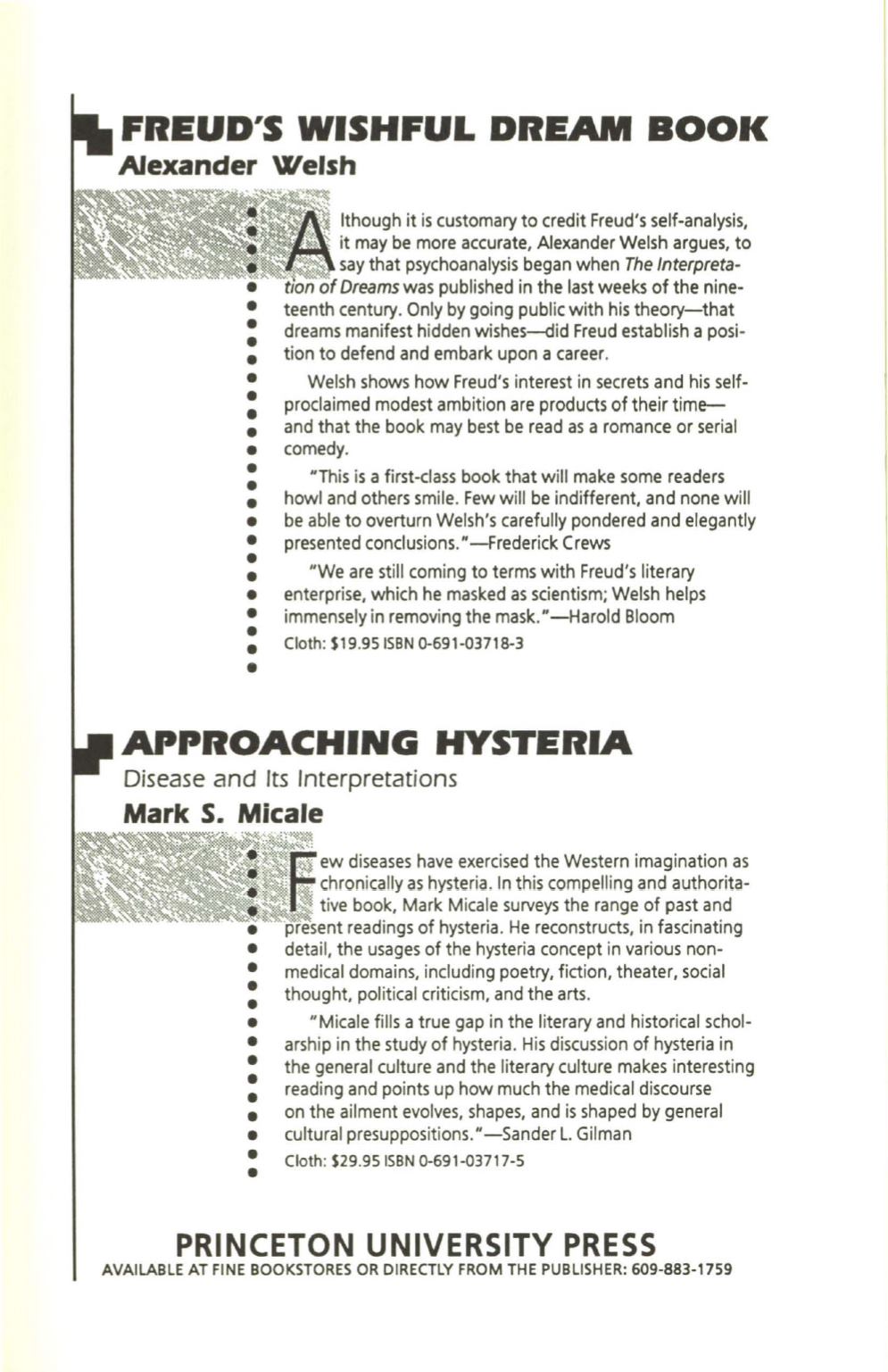
FREUD'S WISHFUL DREAM BOOK
Ithough it is customary to credit Freud's self-analysis,
it may be more accurate, Alexander Welsh argues, to
say that psychoanalysis began when The Interpreta–
of Dreams
was published in the last weeks of the nine–
teenth century. Only by going public with his theory-that
dreams manifest hidden wishes-did Freud establish a posi–
tion to defend and embark upon a career.
Welsh shows how Freud's interest in secrets and his self–
proclaimed modest ambition are products of their time–
and that the book may best be read as a romance or serial
comedy.
"This is a first-class book that will make some readers
howl and others smile. Few will be indifferent, and none will
be able to overturn Welsh's carefully pondered and elegantly
presented conclusions."-Frederick Crews
"We are still coming to terms with Freud's literary
enterprise, which he masked as scientism; Welsh helps
immensely in removing the mask. "-Harold Bloom
Cloth: S19.95 ISBN 0-691-03718-3
APPROACHING HYSTERIA
Disease and Its Interpretations
Mark
s.
Micale
. ew diseases have exercised the Western imagination as
chronically as hysteria . In this compelling and authorita–
tive book, Mark Micale surveys the range of past and
readings of hysteria. He reconstructs, in fascinating
detail, the usages of the hysteria concept in various non–
medical domains, including poetry, fiction, theater, social
thought, political criticism, and the arts.
"Micale fills a true gap in the literary and historical schol–
arship in the study of hysteria . His discussion of hysteria in
the general culture and the literary culture makes interesting
reading and points up how much the medical discourse
on the ailment evolves, shapes, and is shaped by general
cultural presuppositions."-Sander
L.
Gilman
Cloth: S29.95 ISBN 0-691-03717-5
PRINCETON UNIVERSITY PRESS
AVAILABLE AT FINE BOOKSTORES OR DIRECTLY FROM THE PUBLISHER: 609-883-1759


